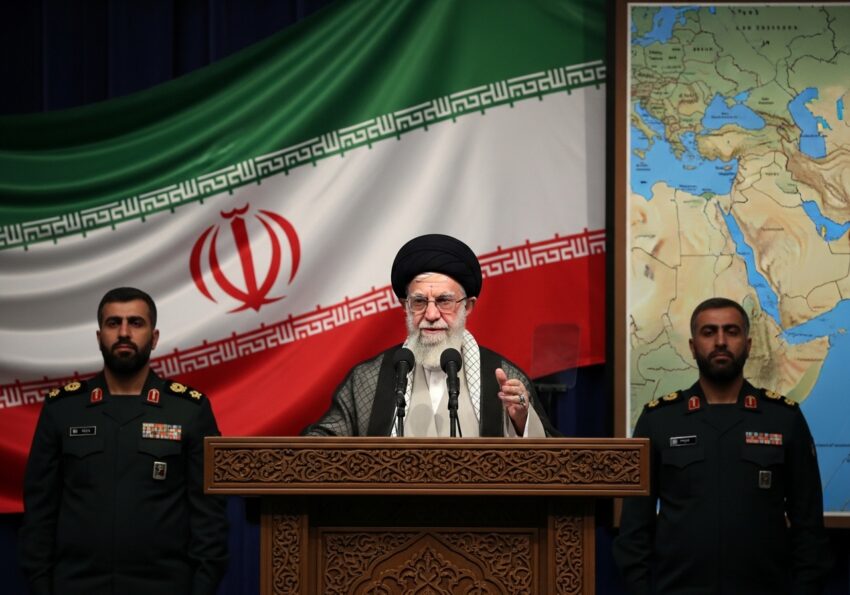Iran’s Supreme Leader, Ayatollah Ali Khamenei, has made it official: the nuclear standoff with the United States is, in his words, “unsolvable.” That’s not just a throwaway line. When Khamenei speaks, he’s not talking to the West—he’s talking to his own power base. And what he’s saying isn’t just about uranium or centrifuges. It’s about leverage, survival, and how Iran plans to keep playing the same dangerous game it’s been playing for decades.
For all the talk about diplomacy and peace, let’s get real: neither Washington nor Tehran ever truly expected a deal to stick. The Obama-era Iran deal (remember that one?) was always a political Band-Aid—one that bought time, quieted headlines, and let both sides pretend they were solving something. Khamenei signed on then because he needed sanctions relief, not because he’d had a change of heart about nuclear weapons or the “Great Satan.”
Fast forward to today, and that Band-Aid is long gone. President Trump tore it off in 2018, calling it what it was: a weak, one-sided deal that gave Iran billions in cash and room to cheat. Since then, Iran’s economy has been in a death spiral, European powers have waffled between pressure and appeasement, and the Biden interregnum offered Tehran a brief window to stall for more concessions. That window is now closed.
So why would Khamenei declare the nuclear issue “unsolvable” now, just as Europe is threatening snapback sanctions and the diplomatic merry-go-round grinds to a halt? Simple. He’s preparing the ground for escalation, not resolution. He knows the West has run out of carrots and is afraid to use the stick. And he’s betting that chaos—regional, political, economic—works in his favor.
This is classic Iranian strategy: play the victim, stall for time, and push just far enough to avoid war while still keeping the nuclear clock ticking. Khamenei is telling his people—and the Revolutionary Guard who really run the show—that there’s no point in pretending anymore. The West is divided, distracted, and desperate not to get dragged into another Middle East mess. That gives Iran room to maneuver.
And let’s not forget the timing. With President Trump back in the White House and making it clear that weakness is no longer U.S. policy, Tehran needs to telegraph toughness. Khamenei’s message is a preemptive move to frame the inevitable confrontation as Washington’s fault. He wants to make it look like Iran is the reasonable party, forced into defiance by American aggression. It’s the same playbook they’ve used for years—just with new actors on the stage.
The Europeans, for their part, are caught between their commercial interests and their fear of a nuclear-armed Iran. Germany, France, and the UK talk tough, but their appetite for real pressure—sanctions that bite, diplomatic isolation, or military deterrence—is limited. They’d rather shuffle papers in Vienna than face the reality that diplomacy isn’t just failing, it’s dead.
What comes next? More brinkmanship. Iran will continue enriching uranium just below weapons-grade, daring the world to stop them. The U.S. will respond with sanctions and warnings, but short of a full-scale confrontation, the regime in Tehran knows it has room to breathe. And if things go hot—if Iran provokes a response in the Gulf or via its terror proxies—it will blame Washington and count on the usual suspects in the media to echo its narrative.
Khamenei’s statement isn’t a confession of defeat. It’s a strategic move, part of a larger chessboard that includes oil markets, regional militias, and nuclear blackmail. It’s not about solving a problem. It’s about managing a crisis—one that Tehran believes it can control better than its opponents.
In the end, Khamenei’s “unsolvable” problem is by design. Because for the Islamic Republic, the threat of the bomb is more valuable than the bomb itself. And as long as the West keeps playing along, the game continues.
Click this link for the original source of this article.
Author: rachel
This content is courtesy of, and owned and copyrighted by, https://www.nationalinsiders.com and its author. This content is made available by use of the public RSS feed offered by the host site and is used for educational purposes only. If you are the author or represent the host site and would like this content removed now and in the future, please contact USSANews.com using the email address in the Contact page found in the website menu.





